Late winter is the perfect time to cut back ornamental grasses. Not only does it let you get a head start on your outdoor chores, it also is a great time to start creating new plants for your landscape !
Ornamental grass varieties are a wonderful addition to any landscape. They provide color, texture, beauty and interest the whole year round. Especially when left in tact through late fall and early winter.
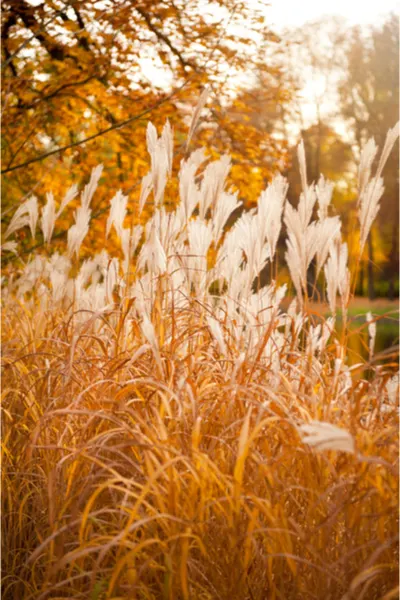
Although grasses can be cut back safely anytime from fall to late spring, allowing them to stand throughout most of the winter has several advantages.
For one, the plumes and foliage add big interest to an otherwise barren landscape. But even more importantly, they provide important cover for wildlife from winter’s harsh cold and wind.
Why Late Winter Is The Perfect Time To Cut Back Grasses
But as late winter begins to give way to early spring, it becomes the perfect time to head out and cut them back.
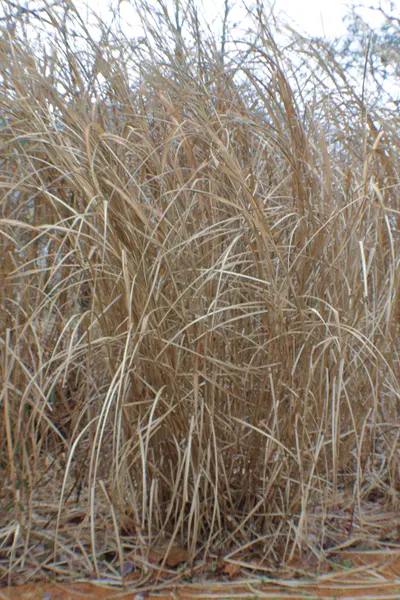
Why late winter? For starters, by February, most grasses start to lose their luster from wind, snow and ice. It has taken a toll on plumes and foliage as they weaken and start to fall off.
And getting out and cutting them back now allows you to clear the beds before the fronds and plumes scatter everywhere.
It also allows light and air to the base of plants, letting new shoots come sprout quickly as soon as the warm weather hits.
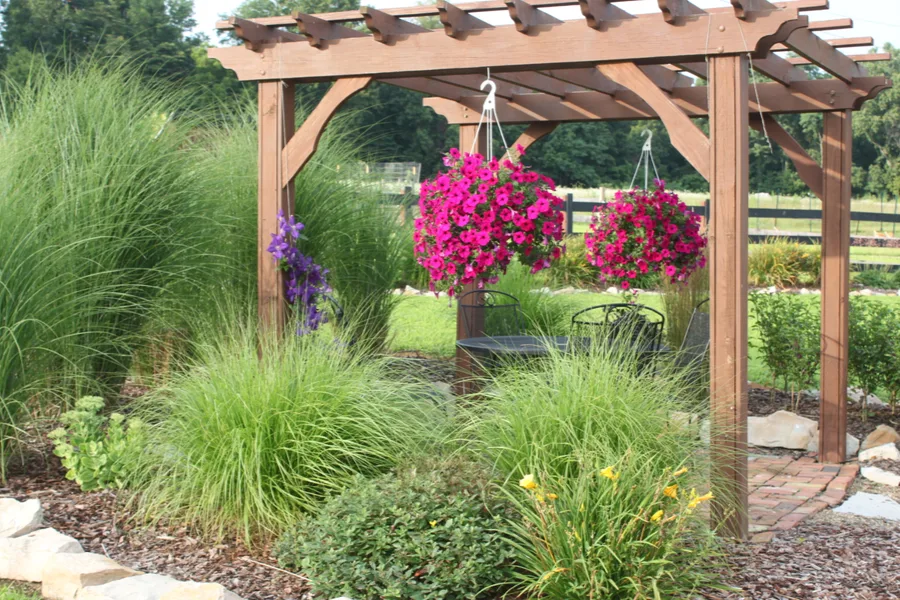
But most importantly of all, cutting back grasses while they are dormant gives you the opportunity to dig up oversize clumps to divide them into new starts. New starts that will hit the ground growing as soon as spring rolls around!
It is an incredible way to keep your grasses healthy, and at the same time, create tons of new plants for free! In fact, we have used this process to create over 300 new ornamental grass plants all over our farm – all from just a handful of original plants!
How To Cut Ornamental Grass Care
Cutting back grasses is actually quite simple, especially if you have the right equipment.
Although you can cut grasses back by hand with shears, a battery powered reciprocating saw or hedge trimmer will work wonders to speed things up.
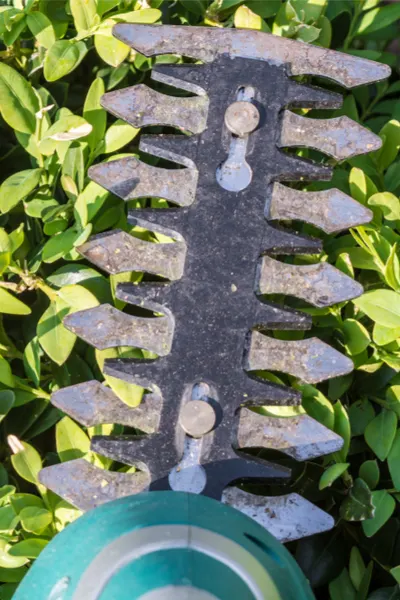
We use a reciprocating saw with a 12″ construction blade to quickly cut back small grasses, and electric hedge shears for larger clumps.
Electric shears, hedge trimmers and even a chain saw will work as well. See: 20 Volt Electric Hedge Trimmers
Cutting Ornamental Grasses Back – How Far To Cut Clumps Back
Although grasses can be cut all the way to ground level, leaving a few inches above the ground is best. It not only keeps a bit of interest in the landscape, but gives a nice base for the new shoots to have for support.
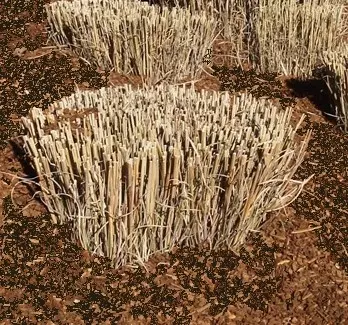
Once cut, the dead plant material is a great source of material to add to your compost pile. Grasses can be slow to decompose when left whole, so be sure to chop them up before adding to speed decomposition.
Can Grasses Be Burned Off?
Yes, plants can be burned back in lieu of cutting back. However, it can be extremely dangerous to nearby structures and plants. It is also illegal in many areas to open burn, just one more reason cutting ornamental grasses back is the better, and safer choice.
How To Divide Clumps To Form New Plants:
When clumps become too large, late winter / early spring is the time to divide to create new plants.
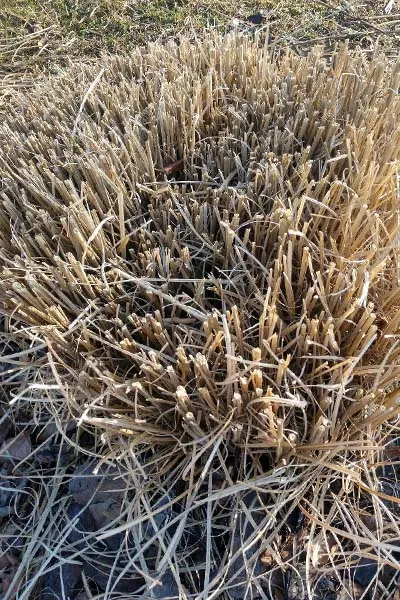
Ornamental grasses grow from the inside out. That means new growth will always occur on the outside rings of the clumps, while the center of old clumps dies off.
Begin by digging out the entire root ball of the clump. If it is too large, it can be dug out in sections. The center dead portions can be put directly into the compost pile.
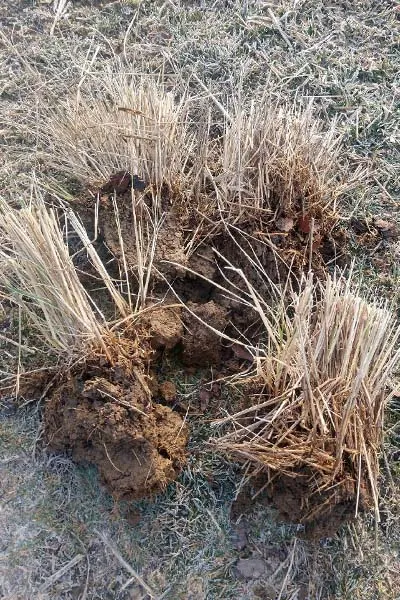
Now it’s time to create new plants! You can create quite a few new starts from an old clump. A sharp shovel or the reciprocating saw makes quick work of splitting them up.
Simply dig a hole for each new clump, and cover around with soil. They do not require any additional soil amending or fertilizers at all. Come spring, they will be ready to grow!
Ornamental grass cuttings are also great to use as focal points in container plantings as well. Simply plant into the center of a big container, and as spring rolls around, it will come to life. See : An Amazing Low-Cost Way To Create Gorgeous Planters
So get out in the landscape, cut back, divide and replant those grasses while you can!
Jim and Mary Competti have been writing gardening, DIY and recipe articles and books for over 15 years from their 46 acre Ohio farm. The two are frequent speakers on all things gardening and love to travel in their spare time.
As always, feel free to email us at thefarm@owgarden.com with comments, questions, or to simply say hello! You can sign up for our free email list in the subscribe now box in the middle of this article. Follow us on Facebook here : OWG Facebook. This article may contain affiliate links.

